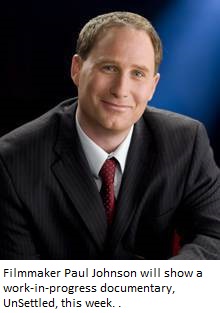For the past year, the Canadian journalist Paul Johnson has been making a documentary on the asbestos litigation industry. Entitled “UnSettled: Inside the Strange World of Asbestos Lawsuits,” it examines how the “business” of asbestos litigation has evolved over the years and focuses on just how politically aligned lawyers are on reform issues.
For the record, my National Courts Monitor website has been an occasional research contributor to the film and has helped organize a “work in progress” showing this week at the National Press Club in Washington D.C.
Paul answered questions from his studio in Washington state.
SW: So, what’s so strange about asbestos lawsuits as opposed to, really, any others?
PJ: For one thing, the longevity. This is probably the longest-running tort issue in the United States, and also how the legal profession has sort of turned both sides, victims and asbestos companies, into a very big business, and as UnSettled shows, I think, how much it can sometimes be more about the lawsuits than the victims, who after all only get less than half the money spent on the litigation every year. It’s just not how you’d think a system designed to benefit very sick people would work; and we shot in Canada just to show a sort of alternative.
SW: Why asbestos, of all issues?
PJ: Well, it’s not so much asbestos but the story of a California lawyer named Mike Lampe, who got involved when his brother’s automobile dealership got sued, maybe 10 years ago now, over exposing somebody to asbestos, except they didn’t exist when the exposure was supposed to have occurred. So Mike Lampe spent years getting the case dismissed then he sued the people who had been suing him, and in so doing really got to dissect how the litigation works, at least in that case. For a while, most of the major asbestos defense firms in the U.S. were watching to see how that came out, and that’s the story that kinda carries the movie. In some circles, asbestos circles and litigation circles, he’s seen as a bit of a hero.
SW: I’ve seen that too; we’ve covered Mike Lampe a bit at the Courts Monitor and always get response, and not everyone is a fan… but a great story. You know, we also sometimes get those mesothelioma ads on our site.
PJ: Yeah, by most measures that’s the most expensive term in the Google AdWords world, and that’s because the meso cases are worth a lot of money. That’s the business view, of course, the real tragedy is how many people have gotten sick and died from asbestos, but I wanted to focus on the litigation aspect, which has not been covered all that much.
SW: So what’s up with the Washington [D.C.] screening this week (Wednesday, Dec. 14)? Sometime last summer you thought you’d be doing a premier by now, right?
PJ: True. But that proved to be a bit optimistic, given that I’m still very much involved with Global [the Canadian television network] and had an opportunity to shoot another project in China during the fall. One of the good things about being an independent production is that you can move things around. That said, I think we’re maybe 90 percent there, and I’m just enjoying discovering what questions people have, mostly the asbestos lawsuit community, but especially the non-lawyers who are really surprised, and some of the legal students…
SW: Surprised by the litigation?
PJ: The litigation, but also how much the Democratic party really protects the plaintiff’s attorneys, how it’s just straight party line politics; I think UnSettled does that pretty well, and they’re really surprised as the sheer scope of asbestos, and they’ve all seen those mesothelioma commercials.
SW: Given the politics, what do you think the election of Donald Trump means?
PJ: Maybe nothing. But combined with Republicans in the House and Senate, you might expect significant changes, especially in the area of bankruptcy trust. As you know, something like 100 companies have taken advantage of special bankruptcy laws to handle asbestos liability, and the the famous Garlock case came along, you’ve covered it, and the judge found a bunch of problems and people telling different stories to the trusts and in civil courts, so that’s part of the film.
SW: And there’s always new news, right?
PG: Sure, but you never get everything into a film, you just take a snapshot. Just this week, I’ve received a white paper about bankruptcy transparency in Newport News [Virginia], and that’s a place where we shot part of the movie, so I’ll have to read that fairly carefully. It seems significant, but hopefully it’s not going to cause us to have to shoot more film, because I think we’ve pretty much wrapped that up.
SW: So, to that point, I’ve wondered about this, and as a website we don’t have to worry about it, but how does a documentary ever really end, ever get finished? Isn’t there always something new…
PJ: Sure. But eventually you just get there, like that old journalism saying that a story is “never finished but only abandoned.” But even so, I think having a bit more time in this case will make this a more complete story that can be relevant for years… there are huge developments going on now, like civil RICO cases and rumors and lawsuits about medical reimbursement issues. That said, I’m thinking we’re ready to premier and distribute soon, and the D.C. showing in a great step toward that.
UnSettled will be screened for audience feedback at the Edward R. Murrow Room at the National Press Club, Washington D.C. this Wednesday, Dec. 14 at 3:30 p.m. Paul Johnson will hold a Q&A immediately following the screening. You can see the trailer at www.unsettledthemovie.com.
(Sara Corcoran Warner is publisher of the National Courts Monitor website, “Your Daily Ration of Civil Justice Rationing,” and a frequent commentator on national legal policy and civil courts issues.)





